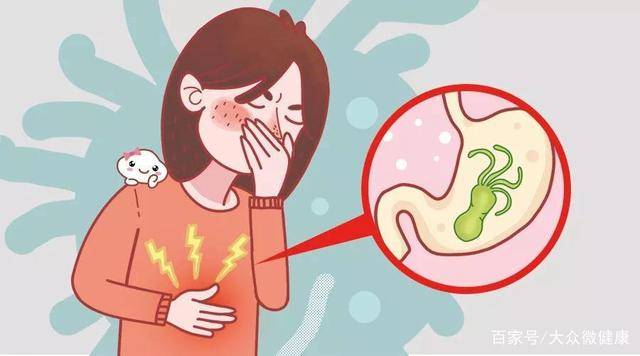As we age, our gastrointestinal function continually declines, which affects our daily absorption of nutrients, with the elderly being particularly vulnerable. Therefore, after reaching a certain age, it is essential to pay extra attention to gastrointestinal health, avoiding some inappropriate eating habits to prevent the harmful bacteria—Helicobacter pylori—from thriving and jeopardizing gastric health.
Case sharing: 56-year-old Wang Ma has been troubled by her mother’s long-standing Helicobacter pylori infection, which she has been unable to eradicate despite being very careful daily. Why hasn’t she received the good news of test results turning negative? After a follow-up examination, the doctor was evidently unsatisfied with the progress of the bacteria elimination for Wang Ma’s mother. It was only after inquiring into her daily diet that the reason for the lack of negative results was finally identified.
It turned out that the family had a fondness for eating fruit and would always keep fruit at home regardless of the season. However, these seemingly ordinary fruits were continuously hindering the progression to negative test results.
1. Attention for families with elderly members: In autumn, avoid eating three fruits; one bite could allow Helicobacter pylori to thrive.
① Kiwi.
Although kiwi has considerable nutritional value and excellent flavor, it is not suitable for those with poor stomach health. This is because kiwi is cold in nature, and excessive consumption can damage the yang energy of the spleen and stomach, leading to nausea and continuous irritation of the stomach’s surface health.
② Fresh jujube.
In autumn, it is advisable not to eat too many fresh jujubes, as they can damage the gastrointestinal tract. This is due to the high dietary fiber content in fresh jujubes, but since they are small, it is easy to consume them in excess, which can stimulate the gastrointestinal tract and cause discomfort.
Additionally, most of the dietary fiber is found in the skin of jujubes, which is thin yet tough with sharp edges, making it easy to damage the stomach’s mucosal surface.
③ Hawthorn.
Those infected with Helicobacter pylori may not have a good appetite and may crave something sour for adjustment. However, consuming too much hawthorn can lead to an imbalance in stomach acidity, causing increased secretion of gastric acid, harming the gastric mucosa and promoting the proliferation of Helicobacter pylori.
Moreover, the high content of pectin and tannins in hawthorn easily coalesces into insoluble precipitates upon contact with gastric acid, potentially forming stones that harm gastric health.
It seems that these ordinary fruits can easily become allies for Helicobacter pylori. If you are currently in a Helicobacter pylori positive phase, you must avoid such fruits, no matter how tempting they may appear. Continuous damage to the gastrointestinal tract is detrimental to achieving negative test results.
2. How to eliminate Helicobacter pylori? Drink water regularly, perform two actions, or provide your gastrointestinal tract with “protection.”
1. 【Drink water regularly】
There is a type of plant oil in the local area of Bama, extracted from hemp seeds, which has a good inhibitory and eliminatory effect on Helicobacter pylori.
The principle is easy to understand. It uses linoleic acid and alpha-linolenic acid to achieve antibacterial effects, laying a solid foundation for eventual sterilization. By continuously consuming it, Helicobacter pylori can gradually be defeated. It also aids in repairing the mucosa of an injured stomach, enhancing antibacterial capability.
There are various ways to consume it: it can be mixed into honey water or yogurt, or drizzled over meals. Both adults and children can choose a suitable method. However, sustaining the elimination effort is crucial; one must not be lazy to avoid aggravating the infection to an uncontrollable point.
2. 【Perform two actions】 Regular eating habits
Many people struggle with self-control regarding their diet and continue to eat spicy, cold, and highly stimulating foods even when experiencing stomach discomfort, which makes reversing a positive test increasingly difficult.
The choice of food is directly related to gastrointestinal health, so it is essential to learn to select the right foods to achieve a protective effect.
3. 【Perform two actions】 Reasonable communal dining
Helicobacter pylori can be transmitted through saliva, so sharing utensils while dining and failing to clean or disinfect utensils increases the risk of transmission.
Therefore, when dining with multiple people, it is best to use serving chopsticks to pick dishes, ensure each person uses their own set of utensils, and avoid cross-usage to implement a series of protective measures.


